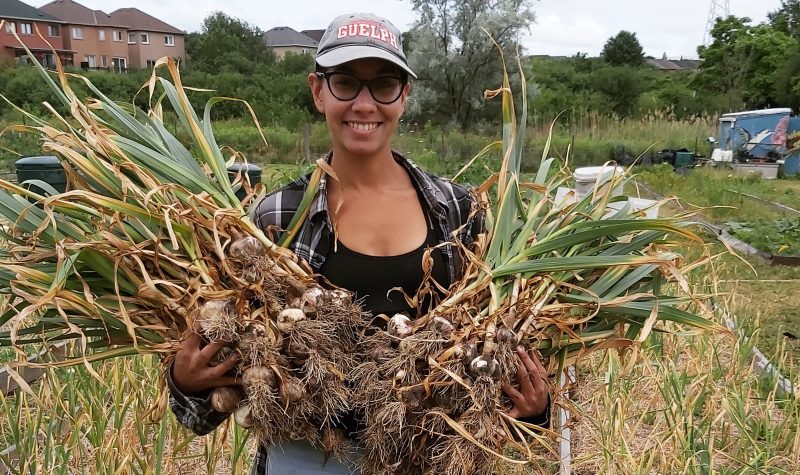Farmers and their families have been travelling across India to New Delhi, where they have been protesting three farm laws for months now, and the protests have gained momentum around the world. Ultimately, these laws would give farmers the option to sell directly to private players, loosening the sale, pricing and storage of crops. In the present system, farmers sell in government controlled markets and get a minimum guaranteed price. Overall, protesters say the new laws are jeopardizing farmer livelihoods.
Rav Singh is an urban farmer from Mississauga, running Shade of Miti. She shares her own concerns around the laws, focusing on what it means for land use. Singh draws from her knowledge as an advocate for food justice and climate justice. She’s also a member of the Indian diaspora, coming from a family of Indian farmers.
“The whole idea of food sovereignty is important to look at because in Canada and India, all around the world, we’re already seeing the effects of climate change. And these injustices and issues that farmers are protesting against are only going to be exacerbated by climate change,” she explains. “So I would not be surprised if we saw more protests like this happening in the future, even here in Canada. And climate change is something that doesn’t know boundaries, geographical, political, etc. So if the bills do go through and the land use in India changes as a result, that’s going to have an effect on climate change. And the effects of it will reach us here in Canada.”
While the pandemic prevents her from joining protesters in India, she’s finding different ways to support the movement. Her primary method of participation is sharing her insight with her online community. Her Lassi Revolution podcast takes a deep dive into farming, the ongoing protests and more.
Listen to the interview below to hear more about Shade of Miti, the interconnectedness of food and climate justice, and how it fits into the farmer protests.


